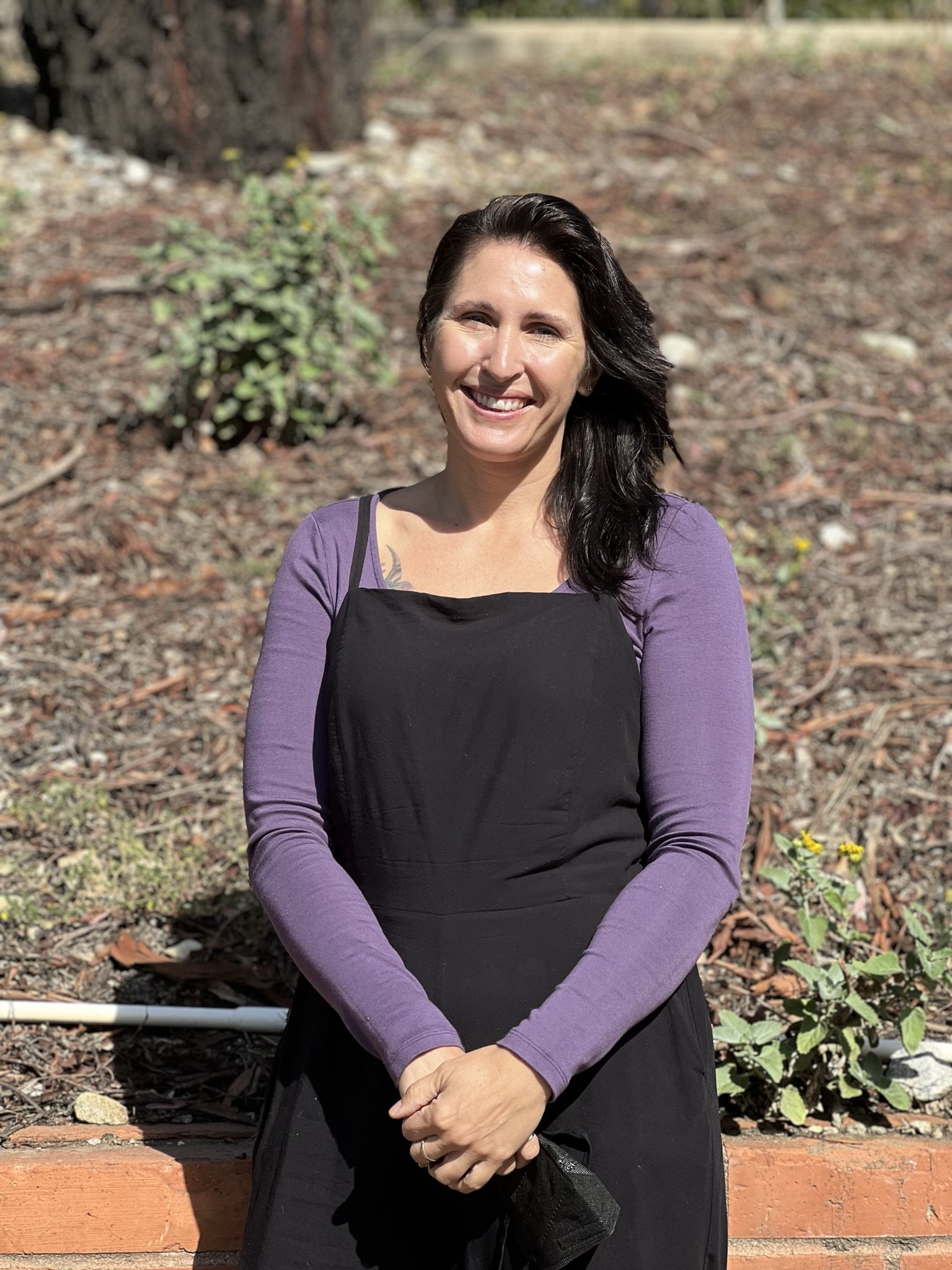How Angela Cardinale has and continues to help students thrive online at Chaffey College.
Professor Angela Cardinale has played momentous roles in helping all Chaffey students succeed online.
By Ethan Latimer
Professor Angela Cardinale poses for a shot outside the library. Photo by Ethan Latimer
If you have taken an online course at Chaffey in the last few years, Professor Angela Cardinale may have played a major part in your success.
Professor Cardinale has been teaching both online and in-person at Chaffey College for over 17 years, starting just after graduating with a Bachelors in English Literature from San Francisco State University and an M.F.A. Creative Writing from Columbia University.
Chaffey quickly recognized her talent, earning her a full time faculty position after only a year of teaching on campus.
Reading, writing and teaching are a few of Cardinale's true passions, but she did not always plan on teaching English.
"I thought I wanted to work in magazine publishing, so I did creative writing and an internship in New York for grad school, but I didn't enjoy working with authors." Not agreeing with some of the elitist and entitled aspects of the writers in that field, she ventured on.
She decided to take a voluntary position as a GED teacher stating "I loved it. I was working with people that really needed the help[...] and that's part of why I love teaching at Chaffey College."
Angela emphasized the push for opportunity rather than entitlement at Chaffey, especially the opportunities provided for first-generation college students, much like herself.
"I really feel that I can help people here, and I can give them advice because I also worked three jobs, didn't have a family that understood what I was doing[...]I didn't think that I'd like standing in front of people, but I just really enjoy it."
Since 2018, Cardinale has assisted in distance learning, becoming involved with the introduction of Canvas. She works with the Distance Education committee, which provides guidelines for online instruction, and helps professors connect more with their students.
As of 2020, she works full-time in this role to help facilitate opportunities to bridge gaps between students and instructors in online classes, assisting to lessen much of the isolation remote learning can cause.
Cardinale helped bring Peer Online Course Review or POCR Academy, to Chaffey's online learning platform. POCR creates guidelines of opportunity for faculty in areas of communicating with students, authentic assessment design and accessibility.
Peer Online Course consists of trained faculty that mentor other faculty to help both the students and faculty to succeed. With approximately 70% of Chaffey's classes being taught online, and a previous 25% prior to the pandemic, this is instrumental. POCR has been proven to be effective, with courses seeing an average of 12% improvement after implementation.
POCR and Online Course Success Rates. Source: Chaffey College Distance Learning Committee
In regards to POCR, she stated, "I think there is a lot of potential in online instruction to increase equity, success and retention if the faculty are implementing correctly." Currently, the program is voluntary and about 15% of all faculty have taken the course designed to structure their classes to be accessible to everyone.
One of her goals is "building community online and humanizing the instruction to help students feel more connected to the instructor and peers."
I asked her about online versus in-person student success to which she replied, "the number one predictor of student success in an online class is the connection they feel with their instructor and classmates, and those things happen naturally in an in-person setting. The instructor has to design them online, If they don't, the students feel isolated and do worse."
I was previously concerned with academic integrity in an online environment, and Angela has completely changed my view.
She believes in "designing really authentic assessments so that students feel that they are meaningful to them," emphasizing good communication and universal accessibility for all students.
She said, "it reduces academic dishonesty because those who don't feel that it matters tend to cheat more," which is why her classes, both online and in-person, are structured to make students feel involved and that the content is relevant.
These are aspects that she has taken from her own classes as well as POCR, giving other faculty the opportunity to excel even more in their online classes.
For professors that insist on using AI proctors such as Turnitin and Proctorio, Cardinale and her team have advocated for in-person proctoring spaces for those uncomfortable with the subjectively invasive practices of proctoring software. In our discussion, she said "we are advocating for proctoring space if they feel uncomfortable."
Professor Cardinale has helped push the college in the direction it needed to go for the future of online education, which is predicted to continue growing at a rate of 10% due to the ever increasing student demand.
From an instructor to a coordinator advocating for all students on campus, Angela Cardinale's actions go far beyond words, and I am grateful for the opportunity to have discussed her career at Chaffey.
Digital Equity and Innovation Space. Photo by Ethan Latimer



